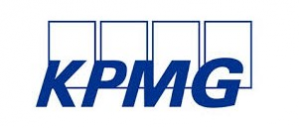RESIDENTIAL MARKET: Interview with Petr Hána (Real Estate Advisory Manager of Deloitte Advisory) on Residential Market Trends
3.02.2017Company: Deloitte
Czech economy sets good conditions for the residential Real Estate. Developers are willing to buy new land and build, buyers are willing to buy and invest. But the restrictions from the law create obstacles and cause the fact that to build a house takes 5-7 years now.
(article based on notes from the discussion on Top Trends in Real Estate held at AmCham on 31 January 2017)
As for administrative interventions, what was the reaction in apartment prices once the Czech National Bank tightened mortgage conditions in autumn 2016 and people had to have at least a 5% down-payment?
At the end of last year, there were three changes that affected the housing market – the new act on consumer loans, change of payer of the property acquisition tax and recommendation of the Czech National Bank to restrict mortgage lending.
However, these changes were not mutually coordinated. On their own, probably none of them would have a significant impact on the market, but since all three of them occurred within a short period of time, it can certainly be expected that they will shake up the market.
Administrative interventions generally create significant pressure on growth of real estate prices. The problem with these changes is, however, that we know about them in advance and the market reacts to them before they occur – stocking up before the change (people buy more), and after the change there can be a significant slowdown. As a result, two extremes can take turns on the real estate market very quickly, either extremely high demand, or complete lack of interest.
The performed changes have so far not fully affected the prices of residential real estate. They should be visible in statistics probably in the second quarter of this year.
What impact the tightening of mortgage conditions will have from April? What will be the reaction in the prices of apartments?
Starting from this April, the situation will be even more complicated. In real terms, it will only be possible to take out a mortgage up to the amount of 80-85% of LTV (loan to value). Other mortgages will be considered as high-risk.
This will mean that even people with average income might not be able to afford a mortgage. They will need to have significantly more of their own resources and they will look for other financing options.
At the same time, we can expect that it will cause greater development in rental housing and an increase in rent prices.
What is the expected development of apartment prices?
Last year was a very dynamic one in terms of the development of prices of residential property – for transaction prices and especially in offer prices.
Over the first three quarters, the average transaction price of residential property at the level of regional cities of the Czech Republic rose by almost 11 percent.
And transactional prices of apartments should have risen by a further 3 to 5 percent in the last quarter of 2016. It is estimated that the development in the first quarter of next year will be similar.
For offer prices, a more moderate increase is expected. Due to all the changes that have or will be made, we can however expect that the market will slow down this year, the demand for home ownership will decrease and prices will grow more slowly than in 2016.
How does the price development in Prague in recent months differ from other regions?
Compared to 2014, sale prices in the third quarter of 2016 increased by more than 21%. The average transaction price of an apartment sold in the third quarter of 2016 reached CZK 46,200 per square meter in all regional cities including Prague. Without Prague, the average transaction price of an apartment in regional cities amounted to CZK 39,500 per square meter. The most expensive apartments were those in development projects, where the average cost of a square meter amounted to CZK 57,600, and the cheapest ones were in prefabricated buildings (CZK 35,900 per square meter). The most significant increase in the sale price in the third quarter of last year was seen in České Budějovice (+13.4%), Hradec Králové (+13.4%), and Jihlava (+10.8%). The most significant decrease was apparent in Karlovy Vary (-6.4%), Ústí nad Labem (-5.9%) and Plzeň (-5.1%). The prices of different types of apartments grow at different rates. For instance, the growth was much faster for prefabricated buildings than for new buildings in the last quarter. Specifically, 5.6% for prefabricated buildings and only 0.9% for new buildings.
To download the full presentation – click here.
Tags: Economics | Real Estate |






